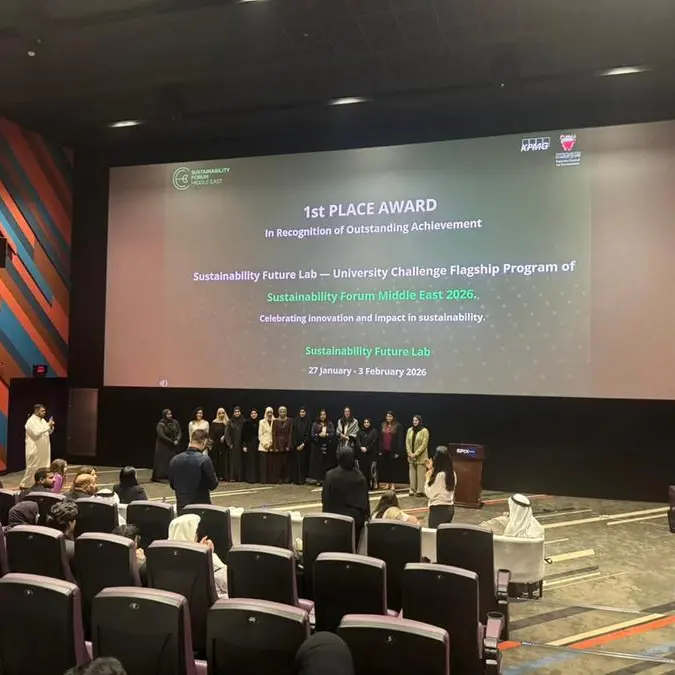PHOTO
- The event saw EY’s tax experts discuss the main developments in Kuwait’s and the wider region’s tax landscape over the past year as well as expected changes to the country’s tax laws and regulations
Kuwait City, Kuwait – EY has hosted its Kuwait Annual Corporate Tax Seminar 2024 in Kuwait City with the aim of guiding businesses in navigating the evolving tax landscape. The latest edition of the event provided an overview of the major developments in the tax landscape that have taken place in Kuwait and the wider region over the last eight months. It also reviewed expected changes that are likely to be introduced in the country’s tax laws and regulations.
The seminar saw the participation of around 220 C-suite executives and finance professionals from Kuwait-based local and international companies and various regulatory bodies. The event leveraged the knowledge and practical experience of EY’s senior tax professionals to provide comprehensive insights that will help the participants understand major changes which may have impact on their businesses.
The agenda covered various aspects of the taxes that are currently imposed in Kuwait and in the MENA region. Key topics included Base Erosion and Profit Shifting (BEPS) Pillar 2, practice changes related to corporate taxes, zakat and national labor support tax (NLST) laws. The sessions also explored the potential implications of upcoming changes to the tax environment, such as the introduction of the business profits tax. Currently in the draft stage and expected be released soon, the tax law will apply to all businesses operating in Kuwait, including companies and natural persons, with revenue exceeding the specified threshold.
Furthermore, the seminar examined regulatory updates and recent tax trends across the MENA region with a focus on the GCC that affect Kuwaiti businesses operating in other jurisdictions. These included the implementation of value-added tax (VAT) in other GCC countries, as well as the corporate income tax (CIT) in the United Arab Emirates (UAE), the qualified domestic minimum tax (QDMTT) in Bahrain and e-invoicing in the Kingdom of Saudi Arabia (KSA). In addition, the event covered the role of technology in the tax transformation journey and the hot topic of environmental, social and governance (ESG) aspects.
Ahmed Eldessouky, EY Kuwait, Qatar and Oman Tax Leader, says:
“Kuwait is proactively working to diversify government revenues, promote foreign direct investment, enhance ease of doing business and create more transparency in its tax regime. The country is also gearing up to implement a new business profits tax, which is a step in the right direction and the need of the hour considering the changes in the global tax landscape. In addition, Kuwait signed agreements to prevent double taxation with the UAE and Qatar. We look forward to supporting our esteemed clients on their journey to navigate and comply with the upcoming taxes in the country.”
Ahmed El Sayed, EY GCR Tax Leader, says:
“The planned introduction of the business profits tax in Kuwait is a game-changing move. Well-regulated and fair taxation can boost economic stability, making the country more attractive to investors from around the world. This can lead to a surge in foreign investment, stimulating economic growth. In addition, the increased revenue from taxes could help the nation diversify its economy, reducing its dependence on oil and financing sustainable projects. Finally, the implementation of taxes promotes transparency and accountability among companies, thereby creating a more responsible business environment.”
About EY | Building a better working world
EY exists to build a better working world, helping to create long-term value for clients, people and society and build trust in the capital markets.
Enabled by data and technology, diverse EY teams in over 150 countries provide trust through assurance and help clients grow, transform and operate.
Working across assurance, consulting, law, strategy, tax and transactions, EY teams ask better questions to find new answers for the complex issues facing our world today.
EY refers to the global organization, and may refer to one or more, of the member firms of Ernst & Young Global Limited, each of which is a separate legal entity. Ernst & Young Global Limited, a UK company limited by guarantee, does not provide services to clients. Information about how EY collects and uses personal data and a description of the rights individuals have under data protection legislation are available via ey.com/privacy. EY member firms do not practice law where prohibited by local laws. For more information about our organization, please visit ey.com.
The MENA practice of EY has been operating in the region since 1923. Over the past 100 years, we have grown to over 8,000 people united across 26 offices and 15 countries, sharing the same values and an unwavering commitment to quality. As an organization, we continue to develop outstanding leaders who deliver exceptional services to our clients and who contribute to our communities. We are proud of our accomplishments over the years, reaffirming our position as the largest and most established professional services organization in the region.
© 2024 EYGM Limited.
All Rights Reserved.
This material has been prepared for general informational purposes only and is not intended to be relied upon as accounting, tax, legal or other professional advice. Please refer to your advisors for specific advice.
ey.com
This news release has been issued by EYGM Limited, a member of the global EY organization that also does not provide any services to clients.
This news release has been issued by EYGM Limited, a member of the global EY organization that also does not provide any services to clients.
Media Contact
Tomader Alrehaili Ewan Abbasi
MENA Public Relations MENA Public Relations
tomader.alrehaili@sa.ey.com ewan.abbasi@ae.ey.com




















